#african film industry
Explore tagged Tumblr posts
Text

Chioma Ude// ⓘ is a Nigerian entertainment executive. In 2010, she founded Africa International Film Festival, a film festival held annually in Nigeria.[1]
Career
Ude founded AFRIFF in 2010, as a platform to train individuals in the film industry and then develop and monetize content for the public.[2] At the Nigerian entertainment conference, she stated that the inability of indigenous filmmakers to adequately convey the language, story, and cultural elements of Nigerians into film was responsible for their non-selection at the Academy Awards.[3] In October 2016, she spoke with the corporate world about AFRIFF in Lagos, explaining that the aim is to raise awareness of the benefits and potential of African cinema.[4] https://fij.ng/article/chioma-odes-envivo-communications-used-20-students-to-get-n60m-loan-from-cbn-now-the-students-are-in-trouble/
Personal life
Ude has a degree in marketing from University of Nigeria, Nsukka.
on Wikipedia
on Instagram
on AFRIFF: Profile // AFRIFF Founder Chioma Ude Leads Effort to Empower African Screenwriters in Collaboration with UCA
on Google Arts & Culture
#african cinema#african cinema industry#african film industry#chioma ude#nigeria#nigerian women#entertainment industry#entertainment#women in entertainment#AFRIFF#africa international film festival#film festival#women enterpreneur#female enterpreneurship#women enterpreneurship
0 notes
Text
The Prince of Wales Celebrates Young Creatives With BAFTA and The Royal African Society








Prince William speaks to Andy Serkis, Celia Imrie, Stephen Merchant, Mircea Monroe, and BAFTA CEO Jane Millichip during an event co-hosted by BAFTA and the Royal African Society, celebrating young creatives and highlighting the importance of support to young people in the film, games and television industries at BAFTA on 9 October 2024 in London, England.
📸: Jonathan Brady - WPA Pool / Getty Images
#Prince William#Prince of Wales#British Royal Family#Royal African Society#BAFTA#films#television series#television shows#movies#actors#Serkis#Celia Imrie#Stephen Merchant#Mircea Monroe#Jane Millichip#film industry
16 notes
·
View notes
Text

How To Start A Production Company And Start Making Movies - Tendayi Nyeke [FULL INTERVIEW]
Watch the video interview on YouTube here.
#netflix#filmmaking#filmmakers#zimbabwe#africa#african cinema#south africa#film and tv#moving to la#hollywood#film industry#animation#working in film#working in hollywood#film production#production company#webseries#african stories#independent film#film#screenwriting#writers on tumblr#screenwriters on tumblr#filmmakers on tumblr
3 notes
·
View notes
Photo
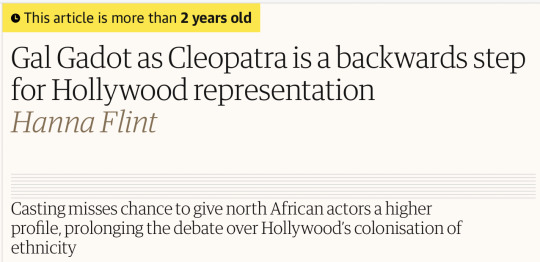
cleopatra.......was macedonian.......i thought we all knew this by now lol. remember alexander the great? yeah. she may have had some north african ancestry, im not a cleopatra expert, but she was also inbred as hell so there weren’t a ton of chances for non-macedonian dna to get in there
#there are plenty of north african women you could base a period drama on#why not encourage the film industry to broaden their horizons instead of telling stories about the same women over and over#e.g. anne boleyn as much as i hate to admit it. i think we have enough anne boleyn media#i feel like a lot of tv/shows try to get cheap diversity points by casting actors of color as white historical figures#it feels like taking the easy way out#like have you considered: you can make period pieces that don't take place in western europe? shocking i know#not that there weren't people of color there but you know what i mean
5 notes
·
View notes
Text
youtube
Music Legend Quincy Jones Has Passed Away At Age 91
Quincy Jones, the legendary music producer and composer, passed away at the age of 91 on November 3, 2024.
#viral trends spot#quincy jones#Quincy Jones death#legendary record producer#music industry icon#Grammy-winning artist#Michael Jackson collaborator#jazz musician#film composer#music arranger#television producer#African American music pioneer#Thriller album producer#We Are the World producer#Frank Sinatra collaborator#music industry influence#Quincy Jones legacy#pop music history#Quincy Jones career highlights#Quincy Jones Has Passed Away At Age 91#Youtube
0 notes
Text
Short film submission platforms creating a place in South Africa

The South African film industry has been steadily growing, with a thriving independent film scene that showcases the country's diverse talent and stories. In recent years, several short film submission platforms have emerged, providing filmmakers with opportunities to showcase their work and connect with the broader film community, and most important is the film festival.
One of the most prominent platforms is the South African Independent Film Festival (SAIFF) . Established in 2017, SAIFF is South Africa's biggest independent film festival, featuring events across the country's major cities. The film festival celebrates local and international short-form cinema, including short films, animations, documentaries, and music videos. In 2021, the film festival's prestigious jury included acclaimed professionals such as Hakeem Kae-Kazim, Natasha Thahane, and Academy Award nominee Peter Baynham, among others. The film festival aims to celebrate the highs, lows, hard work, and creativity of independent filmmaking, providing a platform for filmmakers to showcase their work and connect with film industry professionals.
Another notable platform is the South African HORRORFEST, an international horror film festival that has been running since 2005. The film festival accepts submissions for both feature films and short films, with the highest-quality movies being acknowledged with award certificates. The film festival's physical location is in Cape Town, but it accepts submissions from filmmakers around the world, providing a global stage for South African horror and sci-fi filmmakers.
Beyond these established film festivals, platforms like Unekha and the Clermont-Ferrand International Short Film Festival also offer opportunities for South African filmmakers to submit their short films. Unekha is a platform that showcases non-exclusive short films, allowing filmmakers to have their work featured alongside other platforms. The Clermont-Ferrand International Short Film Festival, one of the most prestigious short film festivals in the world, also accepts submissions from South African filmmakers, providing them with the chance to have their films screened on an international stage.
The emergence of these short film submission platforms has been a boon for the South African film industry, creating a space for filmmakers to showcase their work and connect with the broader film community. These platforms not only provide opportunities for recognition and awards but also serve as a hub for networking, collaboration, and the exchange of ideas.
As the South African film industry continues to grow, these short film submission platforms will play a crucial role in nurturing and supporting the next generation of filmmakers. By offering a platform for their work to be seen and celebrated, these platforms are helping to elevate the profile of South African cinema on the global stage and fostering a thriving and vibrant film community within
#film#film industry#film festival#indie filmmaking#international film festival#south africa#South African film festival
0 notes
Text
Rage Against the Machine - Wake Up 1992
"Wake Up" is a song by American rockband Rage Against the Machine, from their self-titled debut album. While never released as a single, it remains a staple of their live shows and is usually played as the last song before the encore; the spoken word portion of the song is often replaced with a speech addressing contemporary issues, given by frontman Zack de la Rocha. The lyrics discuss racism within the American government and the counter-intelligence programs of the FBI; a spoken portion of the song is taken from an actual FBI memo in which its director J. Edgar Hoover suggests targets for the suppression of the black nationalist movement. The song also makes references to prominent African-American figures targeted by the government such as Malcolm X and Martin Luther King Jr., and goes as far as saying that the government arranged their assassinations.
The album was a critical success upon release, with several critics noting the album's politically motivated agenda and praising frontman Zack de la Rocha's strong vocal delivery. Ranked number 24 on Rolling Stone's list of the "100 Greatest Metal Albums of All Time", the album peaked at number 1 on the US Billboard Heatseekers chart and number 45 on the US Billboard 200 and has gone on to achieve a triple platinum sales certification from the Recording Industry Association of America (RIAA). In 2020, it was ranked 221 in Rolling Stone's updated list of the "500 Greatest Albums of All Time".
"Wake Up" was used in the end credits of the 1999 blockbuster hit The Matrix. A cover, performed by Brass Against, is featured over the end credits of the 2021 film The Matrix Resurrections, mirroring its use in the original film. The song is also included on the soundtrack to the 2001 BMX video game Dave Mirra Freestyle BMX 2.
"Wake Up" received a total of 68,8% yes votes!
youtube
407 notes
·
View notes
Text
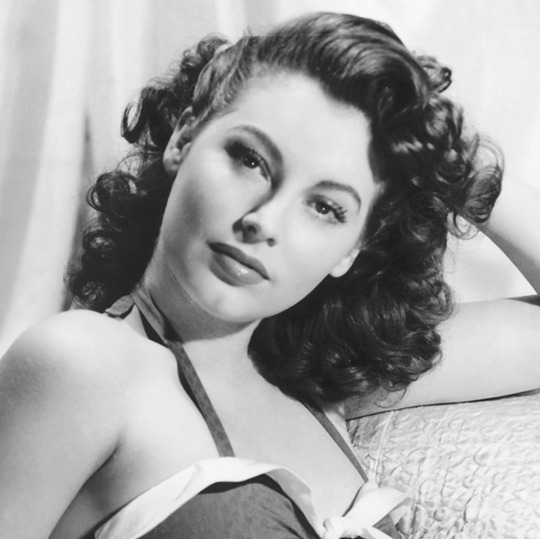

Propaganda
Ava Gardner (The Killers, The Barefoot Contessa)— She's so goddamn hot. Her and Frank Sinatra could've sandwiched me and I would've thanked them for the privilege
Dorothy Dandridge (Carmen Jones, Porgy and Bess, Island in the Sun)— The first Black actress to ever be nominated for best actress, Dorothy Dandridge was a groundbreaking actress who deserved better. She started her career as a singer, being put in a song-and-dance duo with her sister by their stage mother, and singing in soundies (I highly recommend cow cow boogie, it's adorable), proto-music videos. She started appearing as a featured singer in films. Her star was on the rise and she soon became a star solo performer. She continued acting, but had limited options because she refused to do stereotypical roles. She finally landed a starring role in Bright Road in 1953, but it was the movie Carmen Jones that truly cemented her as a star and sex symbol. Not to sound cheesy, but she literally sizzles on screen. You can't help but understand how poor Harry Belafonte gets caught in her trap, just look at her. This is the role that got her that Oscar nom. She didn't win cause I mean #OscarsSoWhite, but she was a sensation and continued starring in films, despite troubles in her life (including a shitty director bf who fucked with her career and a traumatizing pregnancy/delivery). Outside of her filmwork, she was also an activist, fighting against racism. She left behind an amazing legacy, and continues to inspire many actresses to this day (including also very hot first (and only) black woman to win best actress, Halle Berry).
This is round 4 of the tournament. All other polls in this bracket can be found here. Please reblog with further support of your beloved hot sexy vintage woman.
[additional propaganda submitted under the cut.]
Ava Gardner:

Ava Gardner is one of my favorite actresses of all time. Although a lot of her roles in movies are about her being beautiful and nothing else, there are some films where her acting truly shines.

Gifset: https://www.tumblr.com/pelopides/721438308726603776/ava-gardner-as-pandora-reynolds-pandora-and-the
Gifset 2: https://www.tumblr.com/portraitoflestatonfire/731899355804598272/if-the-loustat-reunion-doesnt-look-like-this-then

HER FACE. LOOK AT IT. Also was a life long supporter of civil rights and a member of the NAACP, had lots of fun love affairs with other stars, bullfighters, married several times but was also happy in between to just have lovers and was unapologetically herself.
I literally gasp every time I see her.
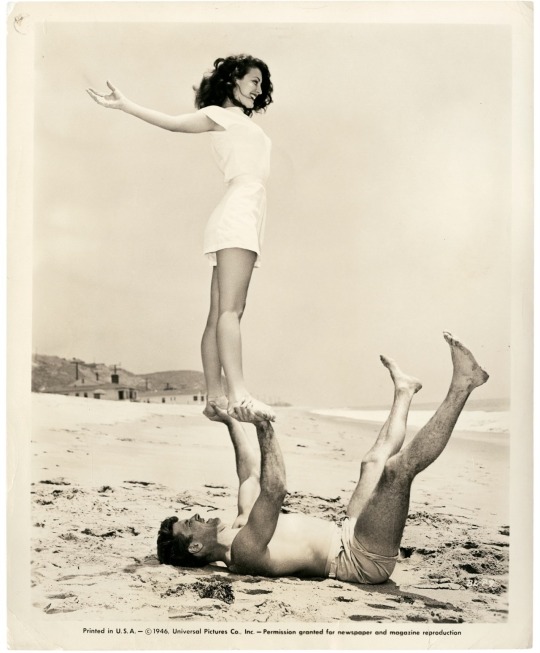
Between 1942 and 1964, Ava Gardner was credited in no less 50 films, and is still considered by some to be the most beautiful actresses that ever graced the silver screen. Despite life-long insecurities regarding her talent as an actress, she weathered public scandal, industry hostility, and outright condemnation by the Catholic Church with fearless grace. She would later in life talk candidly about the reality and pain of living through two (studio approved!!) abortions during her short marriage to Frank Sinatra, and while the two of them could not make their relationship work, they remained in each other’s lives for nearly 30 years. She would forever describe herself as a small-town girl who just got lucky, but always felt like a beautiful outsider.
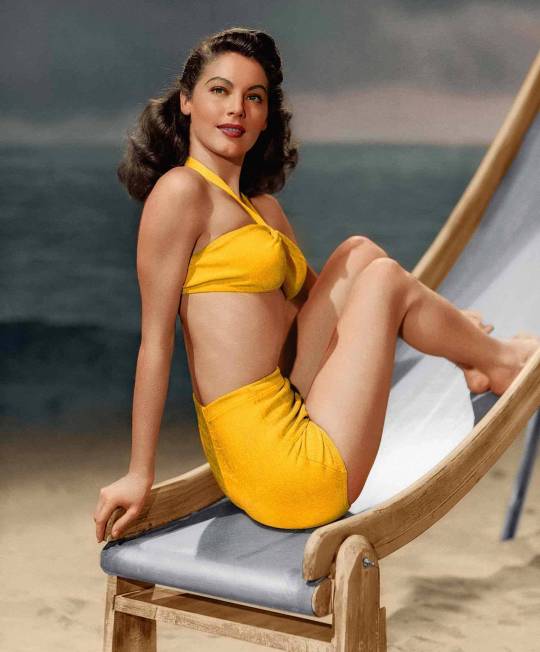
Really genuinely one of the most beautiful human beings I have ever seen. An autodidact. Had amazing chemistry with Gregory Peck to the point where I do think about watching On The Beach again sometimes because they're so good together even though that movie did destroy me. Was a great femme fatale in many movies.

Dorothy Dandridge propaganda:
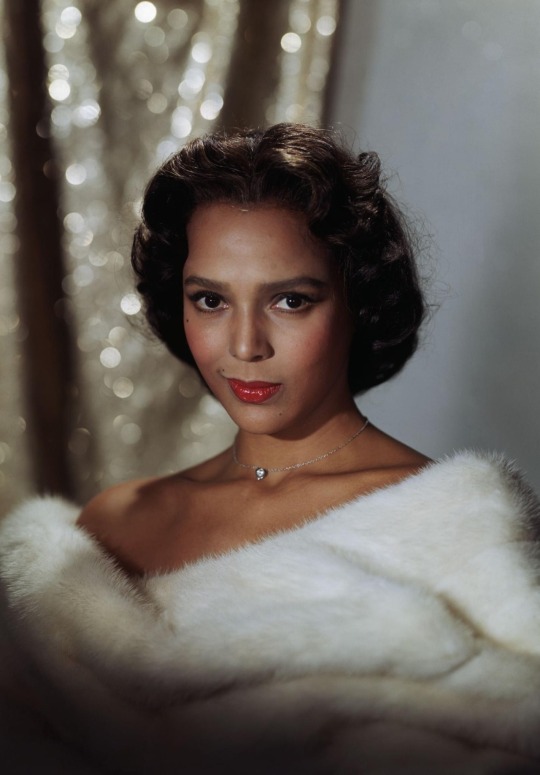
Beautiful actress and hand-working and talented singer, she's especially notable for the number of firsts she accomplished such as the first African-American woman to receive a nomination for the Academy Award for Best Actress and the first African-American woman to appear on the cover of Life magazine.
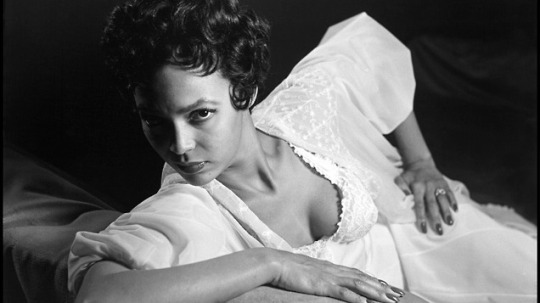
Dorothy Dandridge was a classic Hollywood triple threat, singing, dancing, and acting with the best of them. She was the first African American nominated for an academy award for Best Actress for her role in Carmen Jones and she was just jaw-droppingly beautiful.
youtube
this og of black film needs no introduction (star on the hollywood walk of fame anyone?), voice of an angel, heavenly features, just an overall stunning lady :)
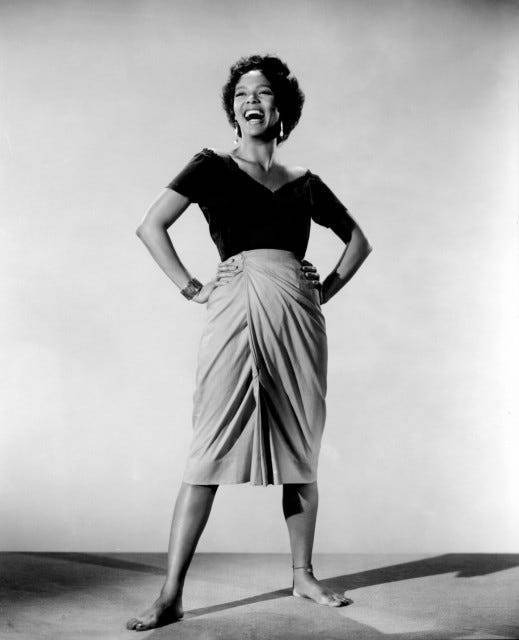
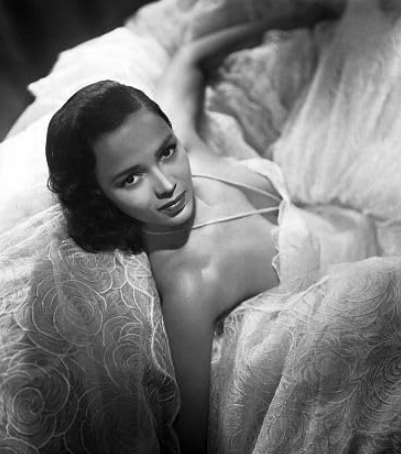
Look at her!!! She is so unbelievably charismatic in Carmen, it’s insane. Her chemistry with Harry Belafonte is off the charts, and every time she puts another outdoor [sic] on it’s like ‘oh god this is a whole new level of stunning’ 🥵. She was so so talented, when she’s on screen I genuinely dare you to tear your eyes away from her. Deserves to be known so much better but due to Hollywood racism and a tough personal life she didn’t make it as big as she should have done. She’s incredible.
First Black actress to be nominated for the Oscar for Best Actress! Was the first choice for the role of Cleopatra that went to Elizabeth Taylor (we were ROBBED).
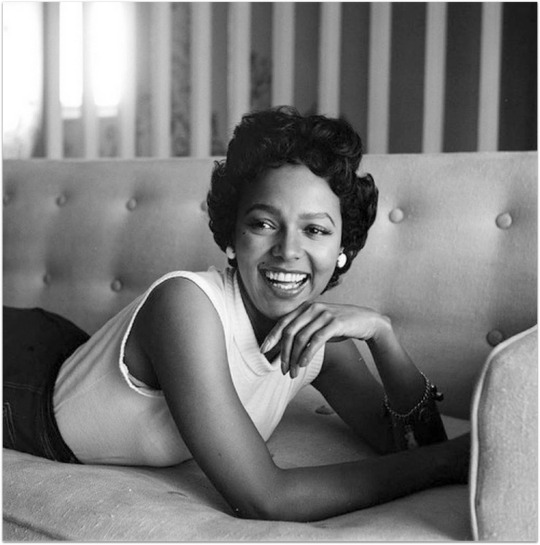
379 notes
·
View notes
Text
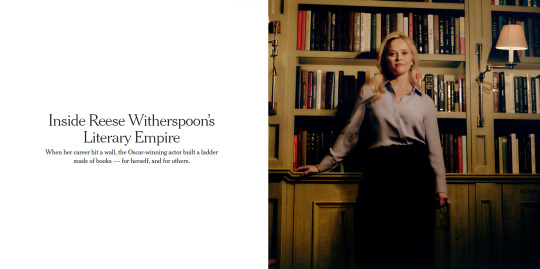
By Elisabeth Egan May 18, 2024
“You’d be shocked by how many books have women chained in basements,” Reese Witherspoon said. “I know it happens in the world. I don’t want to read a book about it.”
Nor does she want to read an academic treatise, or a 700-page novel about a tree.
Sitting in her office in Nashville, occasionally dipping into a box of takeout nachos, Witherspoon talked about what she does like to read — and what she looks for in a selection for Reese’s Book Club, which she referred to in a crisp third person.
“It needs to be optimistic,” Witherspoon said. “It needs to be shareable. Do you close this book and say, ‘I know exactly who I want to give it to?’”
But, first and foremost, she wants books by women, with women at the center of the action who save themselves. “Because that’s what women do,” she said. “No one’s coming to save us.”
Witherspoon, 48, has now been a presence in the book world for a decade. Her productions of novels like “Big Little Lies,” “Little Fires Everywhere” and “The Last Thing He Told Me” are foundations of the binge-watching canon. Her book club picks reliably land on the best-seller list for weeks, months or, in the case of “Where the Crawdads Sing,” years. In 2023, print sales for the club’s selections outpaced those of Oprah’s Book Club and Read With Jenna, according to Circana Bookscan, adding up to 2.3 million copies sold.
So how did an actor who dropped out of college (fine, Stanford) become one of the most influential people in an industry known for being intractable and slightly tweedy?
It started with Witherspoon’s frustration over the film industry’s skimpy representation of women onscreen — especially seasoned, strong, smart, brave, mysterious, complicated and, yes, dangerous women.
“When I was about 34, I stopped reading interesting scripts,” she said.
Witherspoon had already made a name for herself with “Election,” “Legally Blonde” and “Walk the Line.” But, by 2010, Hollywood was in flux: Streaming services were gaining traction. DVDs were following VHS tapes to the land of forgotten technology.
“When there’s a big economic shift in the media business, it’s not the superhero movies or independent films we lose out on,” Witherspoon said. “It’s the middle, which is usually where women live. The family drama. The romantic comedy. So I decided to fund a company to make those kinds of movies.”
In 2012, she started the production company Pacific Standard with Bruna Papandrea. Its first projects were film adaptations of books: “Gone Girl” and “Wild,” which both opened in theaters in 2014.
Growing up in Nashville, Witherspoon knew the value of a library card. She caught the bug early, she said, from her grandmother, Dorothea Draper Witherspoon, who taught first grade and devoured Danielle Steel novels in a “big cozy lounger” while sipping iced tea from a glass “with a little paper towel wrapped around it.”
This attention to detail is a smoke signal of sorts: Witherspoon is a person of words.
When she was in high school, Witherspoon stayed after class to badger her English teacher — Margaret Renkl, now a contributing opinion writer for The New York Times — about books that weren’t part of the curriculum. When Witherspoon first moved to Los Angeles, books helped prepare her for the “chaos” of filmmaking; “The Making of the African Queen” by Katharine Hepburn was a particular favorite.
So it made sense that, as soon as Witherspoon joined Instagram, she started sharing book recommendations. Authors were tickled and readers shopped accordingly. In 2017, Witherspoon made it official: Reese’s Book Club became a part of her new company, Hello Sunshine.
The timing was fortuitous, according to Pamela Dorman, senior vice president and publisher of Pamela Dorman Books/Viking, who edited the club’s inaugural pick, “Eleanor Oliphant is Completely Fine.” “The book world needed something to help boost sales in a new way,” she said.
Reese’s Book Club was that something: “Eleanor Oliphant” spent 85 weeks on the paperback best-seller list. The club’s second pick, “The Alice Network,” spent nearly four months on the weekly best-seller lists and two months on the audio list. Its third, “The Lying Game,” spent 18 weeks on the weekly lists.
“There’s nothing better than getting that phone call,” added Dorman, who has now edited two more Reese’s Book Club selections.
Kiley Reid’s debut novel, “Such a Fun Age,” got the nod in January 2020. She said, “When I was on book tour, a lot of women would tell me, ‘I haven’t read a book in four years, but I trust Reese.’” Four years later, on tour for her second novel, “Come and Get It,” Reid met women who were reading 100 books a year.
Witherspoon tapped into a sweet spot between literary and commercial fiction, with a few essay collections and memoirs sprinkled in. She turned out to be the literary equivalent of a fit model — a reliable bellwether for readers in search of intelligent, discussion-worthy fare, hold the Proust. She wanted to help narrow down the choices for busy readers, she said, “to bring the book club out of your grandma’s living room and online.”
She added: “The unexpected piece of it all was the economic impact on these authors’ lives.”
One writer became the first person in her family to own a home. “She texted me a picture of the key,” Witherspoon said. “I burst into tears.”
Witherspoon considers a handful of books each month. Submissions from publishers are culled by a small group that includes Sarah Harden, chief executive of Hello Sunshine; Gretchen Schreiber, manager of books (her original title was “bookworm”); and Jon Baker, whose team at Baker Literary Scouting scours the market for promising manuscripts.
Not only is Witherspoon focused on stories by women — “the Bechdel test writ large,” Baker said — but also, “Nothing makes her happier than getting something out in the world that you might not see otherwise.”
When transgender rights were in the headlines in 2018, the club chose “This Is How It Always Is,” Laurie Frankel’s novel about a family grappling with related issues in the petri dish of their own home. “We track the long tail of our book club picks and this one, without fail, continues to sell,” Baker said.
Witherspoon’s early readers look for a balance of voices, backgrounds and experiences. They also pay attention to the calendar. “Everyone knows December and May are the busiest months for women,” Harden said, referring to the mad rush of the holidays and the end of the school year. “You don’t want to read a literary doorstop then. What do you want to read on summer break? What do you want to read in January?”
Occasionally the group chooses a book that isn’t brand-new, as with the club’s April pick, “The Most Fun We Ever Had,” from 2019. When Claire Lombardo learned that her almost-five-year-old novel had been anointed, she thought there had been a mistake; after all, her new book, “Same As it Ever Was,” is coming out next month. “It’s wild,” Lombardo said. “It’s not something that I was expecting.”
Sales of “The Most Fun We Ever Had” increased by 10,000 percent after the announcement, according to Doubleday. Within the first two weeks, 27,000 copies were sold. The book has been optioned by Hello Sunshine.
Witherspoon preferred not to elaborate on a few subjects: competition with other top-shelf book clubs (“We try not to pick the same books”); the lone author who declined to be part of hers (“I have a lot of respect for her clarity”); and the 2025 book she’s already called dibs on (“You can’t imagine that Edith Wharton or Graham Greene didn’t write it”).
But she was eager to set the record straight on two fronts. Her team doesn’t get the rights to every book — “It’s just how the cookie crumbles,” she said — and, Reese’s Book Club doesn’t make money off sales of its picks. Earnings come from brand collaborations and affiliate revenue.
This is true of all celebrity book clubs. An endorsement from one of them is a free shot of publicity, but one might argue that Reese’s Book Club does a bit more for its books and authors than most. Not only does it promote each book from hardcover to paperback, it supports authors in subsequent phases of their careers.
Take Reid, for instance. More than three years after Reese’s Book Club picked her first novel, it hosted a cover reveal for “Come and Get It,” which came out in January. This isn’t the same as a yellow seal on the cover, but it’s still a spotlight with the potential to be seen by the club’s 2.9 million Instagram followers.
“I definitely felt like I was joining a very large community,” Reid said.
“Alum” writers tend to stay connected with one another via social media, swapping woot woots and advice. They’re also invited to participate in Hello Sunshine events and Lit Up, a mentorship program for underrepresented writers. Participants get editing and coaching from Reese’s Book Club authors, plus a marketing commitment from the club when their manuscripts are submitted to agents and editors.
“I describe publishing and where we sit in terms of being on a river,” Schreiber said. “We’re downstream; we’re looking at what they’re picking. Lit Up gave us the ability to look upstream and say, ‘We’d like to make a change here.’”
The first Lit Up-incubated novel, “Time and Time Again” by Chatham Greenfield, is coming out from Bloomsbury YA in July. Five more fellows have announced the sales of their books.
As Reese’s Book Club approaches a milestone — the 100th pick, to be announced in September — it continues to adapt to changes in the market. Print sales for club selections peaked at five million in 2020, and they’ve softened since then, according to Circana Bookscan. In 2021, Candle Media, a Blackstone-backed media company, bought Hello Sunshine for $900 million. Witherspoon is a member of Candle Media’s board. She is currently co-producing a “Legally Blonde” prequel series for Amazon Prime Video.
This month, Reese’s Book Club will unveil an exclusive audio partnership with Apple, allowing readers to find all the picks in one place on the Apple Books app. “I want people to stop saying, ‘I didn’t really read it, I just listened,’” Witherspoon said. “Stop that. If you listened, you read it. There’s no right way to absorb a book.”
She feels that Hollywood has changed over the years: “Consumers are more discerning about wanting to hear stories that are generated by a woman.”
Even as she’s looking forward, Witherspoon remembers her grandmother, the one who set her on this path.
“Somebody came up to me at the gym the other day and he said” — here she put on a gentle Southern drawl — “‘I’m going to tell you something I bet you didn’t hear today.’ And he goes, ‘Your grandma taught me how to read.’”
Another smoke signal, and a reminder of what lives on.
#reese witherspoon#reese's book club#reading#literary#club#book#new york times#elisabeth egan#article
197 notes
·
View notes
Text
In early September, the U.S. Department of Justice unveiled a series of sweeping investigations and indictments into Russian information projects aimed at disrupting the 2024 U.S. presidential election. One of these projects, which secretly funded right-wing influencers to promote former President Donald Trump’s campaign, is an escalation from prior Russian information operations, such as their email hacks during the 2016 election.
But another Russian team, described in a planning document published by the Department of Justice, approached disrupting the election a little bit less directly.
The Russian plan describes the “Good Ol’ USA Project” as a “guerrilla media” campaign intended to target “sentiments that should be exploited in the course of an information campaign in/for the United States.” Written by Ilya Gambashidze, a figure already facing sanctions for his disinformation work aimed at smearing Ukraine, the document suggests focusing influence efforts on the “community of American gamers, users of Reddit and image boards, such as 4Chan,” since they are the “backbone of the right-wing trends” online in the United States.
The inclusion of gamers in this campaign points at emerging dynamics in a global struggle over human rights online—one that policymakers need to pay closer attention to.
According to the Entertainment Software Association, a trade group, around 65 percent of Americans—or 212 million people—regularly play video games. Globally, video games generate more than $280 billion in revenue, far larger than traditional culture industries such as film or book publishing. While a trickle of stories about other attempts to push Russian propaganda in video games have attracted some scrutiny from journalists, the question remains: Apart from scale, what is it about gamers that Russia thinks will make them receptive to its messaging?
For starters, video game culture has already become an important venue for extremist right-wing groups to share and normalize their ideas. Far-right groups modify video games to be more explicitly racist and violent than their designers intended. Even gaming spaces designed for children, such as Roblox, which allows players to create their own game worlds and storylines, have attracted thousands of people (many of them young teenagers) to use the game’s freewheeling mechanics to play-act fascist violence.
The prevalence of hate groups has shaped video games into a place where culture and politics are debated, often contentiously, with predictable fault lines emerging along U.S. partisan boundaries. While the industry itself has made considerable progress in improving representation and reducing acts of horrific sexual violence, it has received pushback from far-right figures who are angry at the so-called “wokes” for supposedly “ruining games.”
For a decade, repeated efforts to “reclaim” gaming from an imagined enemy composed of women, Black people, and LGBT+ folks have bubbled up from the darkest corners of the internet, often in places such as Reddit (where this Russian campaign aimed its influence activity). These movements have spilled over into more mainstream political movements that can shape election outcomes. Consider how Gamergate, a 2014 campaign to terrorize women working in the industry into invisibility, metastasized into an online troll army working to get former U.S. President Donald Trump elected in 2016.
These far-right efforts are ongoing, even without Russian help. Last year, a group of gamers who were angry at inclusive representation in games launched a harassment campaign—colloquially called Gamergate 2.0—against a story consulting company.
Earlier this year, when Ubisoft began promoting the latest installment of its popular Assassin’s Creed franchise, this time set in feudal Japan, the trailer prominently featured Yasuke, an African man who served as a samurai in 16th-century Japan. Despite being based on a real historical figure, this movement (egged on by X owner and billionaire Elon Musk) raged at the decision, as if acknowledging Black people in the past was somehow bad. In their quest to sow division within the United States, Russian information operations analysts do not need to look very far to find political allies in gaming communities.
It helps that Russia enjoys greater social legitimacy in gaming than it does in, say, news journalism. You can see this legitimacy reflected in the language gamers that use as they play. Around the same time as Gamergate, a vulgar Russian phrase began popping up in the chats that players use to communicate with each other in non-Russian game streams, primarily in the multiplayer first-person shooter Counterstrike: Global Offensive. The game has around 4 million Russian players, and as it grew in popularity in the mid-2010s, the Russian obscenity cyka blyad became common invective during frustrating moments of play. Its widespread adoption among non-Russian-speaking gamers struck many as odd.
Cyka blyad rose in prominence alongside Russia’s descent into becoming an international pariah, which has limited the spaces where Russian gamers can play games online. In 2014, Russia passed a law requiring websites that store the personal information of Russian citizens to do so on servers inside the country. This was compounded in 2022, when companies ranging from Activision Blizzard to Nintendo protested the invasion of Ukraine by either suspending sales or shutting down Russia-specific services. Despite its residents representing around 10 percent of Counterstrike’s player base, there are no host servers for the game anywhere in Russia.
So, when Russian players log on to find players for a match, they use servers based in Europe or sometimes North America. These servers place them into direct contact with players on the other side of international conflicts—something that many players within the European Union found deeply frustrating after Russia’s illegal annexation of Crimea in 2014, as their games became places where people would argue about the annexation.
But another reason why Russian slang began infiltrating non-Russian gaming spaces is that after years of censorship and exclusion from both Russian and Western governments, games are one of the only spaces direct exchanges between ordinary Russian and Western people. Russians lack access to many Western social media platforms—such as Instagram (blocked by the Russian government in 2022, though earlier this year some Russian users regained access)—and were locked out of Western game stores, even as they kept access to many online games. As a result, matches in a game such as Counterstrike or Fortnite became one of the only places where these informal cultural exchanges could take place.
This narrowing of exchange spaces highlights how video games can become useful conduits for propaganda, and it demonstrates that video games are becoming an important, if underappreciated, site for ideological disputes over politics, speech, identity, and expression.
Other countries have begun to use video games for strategic communication. The U.S. government operates semiprofessional esports teams through the Defense Department, whose remit includes convincing young people to become interested in enlistment. China launched a military-produced first-person shooter game to boost recruitment and to humanize the image of the People’s Liberation Army abroad.
The Chinese developers of the hugely popular game Black Myth: Wukong instructed gaming influencers who were given early access to avoid discussing “feminist propaganda” while reviewing the game, apparently to adhere to government censorship rules. And Russian propaganda about the country’s war with Ukraine has begun appearing in games that allow user-generated content, such as Minecraft and the aforementioned Roblox, as the Kremlin seeks to persuade Westerners to end their support for Ukrainian freedom. In response, the U.S. State Department has begun developing its own games intended to train players to resist Russian disinformation.
This isn’t an abstract challenge. Scholars have drawn linkages between Russia’s propaganda efforts and President Vladimir Putin’s decision to launch the full-scale invasion of Ukraine in 2022 as both bots and human agents aggressively pushed narratives about the need to “pacify” an ostensibly violent Ukraine by invading. The invasion was further justified by the myth of Novorossiya, or a pan-Russian identity that views Ukrainians as misguided Russians who need to be forcibly reclaimed.
These efforts to spread propaganda through gaming are rarely successful. Few people wanted to, say, join Hezbollah after the Lebanese militant group launched its own game, Special Force, in 2003. The terrorist group al Qaeda has used video games for recruitment since 2006, but there is little evidence that any meaningful number of people have been recruited because of it. Scholars have fretted for years over the “militarization” of video games as the Pentagon gets more and more involved in the industry, yet U.S. military recruitment is in long-term decline, and public confidence in the nation’s military is at a two-decade low. If games-based propaganda works, we do not yet know where or how it does.
The revelations about Russian video game propaganda hint at some intriguing innovation in how strategic messages might be spread through nontraditional channels, but they also point to the areas where traditional channels for propaganda have closed down. Despite efforts by Republicans in Congress to falsely accuse agencies such as the Global Engagement Center of partisan bias when addressing foreign misinformation, the U.S. government takes the challenge seriously and, as this 2022 report on the propaganda channels , is working to thwart many of Russia’s best efforts to target Americans with propaganda, like when they sanctioned several Russian oligarchs who had been financing US-directed misinformation.
But even beyond government counterprogramming, there are plenty of obstacles to Russia’s efforts within the world of gaming. For example, Ukraine’s video games industry is respected in the United States and Europe. The developer 4A, which was based in Kyiv before the invasion, produces popular games such as the Metro franchise. That company, however, had to fly its employees abroad to keep them safe from the indiscriminate Russian barrages against the Ukrainian capital and other cities. This sent shockwaves through the industry, as it made some of the consequences of the invasion seem more viscerally real even to people who do not follow politics closely.
As a result of American and European sanctions, Russians have a more difficult experience legally purchasing software and services such as online gaming. (Some Russian game companies have since relocated abroad to more neutral countries, such as Cyprus, to continue operating globally). Wargaming, the Belarusian company that makes World of Tanks, also fled to Cyprus, which has become an informal hub of Russian game companies.
Looking forward, there are real questions about what video games are going to become in the information war between Russia and the West. Russian censors have proposed deploying neural networks to search for banned content in games, but it is unclear whether those systems might disrupt gaming for everyone else.
Long before the invasion of Ukraine, Moscow forced Activision to censor the infamous airport sequence in the rerelease of Call of Duty: Modern Warfare 2 (in which players assume the role of a Chechen terrorist and can slaughter hundreds of screaming civilians at Sheremetyevo International Airport), and it has not been shy about using government coercion to erase LGBT+ people from gaming (paralleling to its embrace of the U.S. far right). Policymakers should look at ensuring that global communication platforms—and that is what video games are—remain open to free speech and safeguard other basic human rights.
While the latest Russian effort to target games seems to have been thwarted by the U.S. Justice Department, there will undoubtedly be more programs looking to repeat and extend the success of Gamergate in empowering the far right, perhaps this time by enabling it to obstruct effective governance in the United States. The Good Ol’ USA Project also targeted its influence operations toward websites such as Reddit and 4Chan, both of which are as central to the sustainment of far-right movements as gaming. Emerging platforms—which range from popular Chinese games to channels such as the online chat service Discord, which is difficult to monitor at scale and routinely hosts leaks of sensitive military documents—present new opportunities where Russian influence could be targeted.
These strange spaces are the frontier where a global battle for speech is being fought.
100 notes
·
View notes
Text
Prince William x Mood








Prince William speaks with attendees during an event co-hosted by BAFTA and the Royal African Society, celebrating young creatives and highlighting the importance of support to young people in the film, games and television industries at BAFTA on 9 October 2024 in London, England.
📸: Jonathan Brady - WPA Pool / Getty Images
#Prince William#Prince of Wales#British Royal Family#Royal African Society#BAFTA#film industry#films#movies#tv series#tv shows#actors
11 notes
·
View notes
Text
You know I’ve always found that the concept of exploitation and grindhouse and even horror is a solely western genre to some people to the point that I will look at people discussing or reviewing Asian or Latin American grindhouse/exploitation/genre films and they take everything at face value and think these films were made with complete sincerity. Like a lot of people actually think people in non western countries are too stupid to make something with shock value that is intended to get people to pick it up. A lot of stuff written about“worldweird” cinema is like this like just people completely missing the point and gawking at how incredibly weird and stupid they think whatever asian/african/South American country that had an entire industry of genre films is for “accidentally” making something they think is interesting
102 notes
·
View notes
Text

The Rise Of African Cinema... 3rd Largest Film Industry In The World - Tendayi Nyeke
Watch the video interview on YouTube here.
#cinema#filmmaking#movies#film#zimbabwe#africa#african cinema#filmmakers on tumblr#independent film#film and tv#entertainment industry#making a movie#producer life#film production#film producer#movie producer#making movies#independent filmmaking#art house cinema
1 note
·
View note
Text


Category: Woman (2022, dir. Phyllis Ellis). Stream here.
When 18-year-old South African runner Caster Semenya burst onto the world stage in 2009, her championship was not celebrated, but marred by doubt, her personal medical records leaked to the international media. The public scrutiny of her body, driven by racism and sexism, questioning the most fundamental right of who she is, a great champion. The International Amateur Athletics Federation (now World Athletics) then ruled that targeted female athletes must medically alter their healthy bodies in order to compete. Their naturally high androgen levels, 'deemed' a performance advantage. Category: Woman focuses on four remarkable athletes, from the Global South, forced out of competition by these regulations, the devastation to their bodies, and their lives. Equally arresting is their passion for sport is further emboldened by their conviction to stand up for their human rights. Following her award-winning film Toxic Beauty, filmmaker and Olympian Phyllis Ellis exposes an industry controlled by men putting women’s lives at risk while the policing of women’s bodies in sport remains, in a more nefarious way, under the guise of fair play.
Breaking from this blog's hiatus to post this in light of the racist bullying of Imane Khelif. I'd recommend everyone watch it (it's only 76 min) for an understanding of the issues at play - how the false, easily digestible narrative of "fairness" in fact means unfairness and racist mistreatment for these extraordinary women. Even the introduction is powerful:
"Some bodies are marked. The gender that goes unmarked as male. Women are maked in all the ways that they are different. The unmarked race is white. Some bodies that are black and brown and female have a particular kind of marking. These bodies are marked as insufficiently human. How do you castigate a category of people as insufficiently human? By throwing their gender into doubt."
Dutee Chand, India's first openly lesbian athlete is interviewed in this documentary about the racist mistreatment and scrutiny she received for these issues.
Please watch and spread!
#dutee chand#Annet Negesa#Margaret Wambui#Evangeline Makena#Imane Khelif#Caster Semanya#phyllis ellis#category: woman#indian lesbians#documentaries#intersex women
132 notes
·
View notes
Text

Today In History
Miriam Zenzi Makeba, internationally renowned singer was born near Johannesburg, South Africa, on this date March 4,1932, during a time of economic depression. Her mother, a domestic worker, was imprisoned for six months for illegally brewing beer to help make ends meet, and Miriam went to prison with her as she was just 18 days old. She grew up in Nelspruit where her father was a clerk with Shell Oil.
Makeba began her music career singing for her cousin’s band, the Cuban Brothers, but it was only when she began to sing for the Manhattan Brothers in 1954 that she began to build a reputation. She toured South Africa, Zimbabwe (former Rhodesia) and the Congo with the band until 1957. After this Makeba sang for all-women group, the Skylarks, which combined jazz and traditional African melodies. Makeba’s appearances in the films Come Back Africa (1957) and as the female lead in Todd Matshikiza’s King Kong (1959) cemented her reputation in the music industry both locally and abroad.
“Empress of African Song”
CARTER™️ Magazine
#miriam makeba#carter magazine#carter#historyandhiphop365#wherehistoryandhiphopmeet#history#cartermagazine#today in history#staywoke#blackhistory#blackhistorymonth
163 notes
·
View notes
Text
3 Black Movie Producers Who Changed the Film Industry

1. Ava DuVernay
Impact: DuVernay is a trailblazer in both film and television, known for her work on Selma, 13th, and When They See Us. She became the first Black woman to win the Best Director prize at Sundance, and her films tackle systemic racism, civil rights, and social justice.

2. Tyler Perry
Impact: Perry revolutionized the film industry by creating a thriving production empire. Known for the Madea films, he became one of the most successful Black filmmakers and opened the Tyler Perry Studios in Atlanta, the first major studio owned by an African American.

3. Spike Lee
Impact: A pioneer of independent filmmaking, Lee’s films like Do the Right Thing and Malcolm X have sparked important conversations about race in America. His work has influenced countless filmmakers and helped elevate African-American voices in cinema.

#ambitious women#beautiful women#beauty#glow society#the glow society#fit beauty#health#self love#self improvement#self care#malcom x#black femininity#black princess#black queen#black history#black woman#black people#black beauty#black women#black girl#black girl moodboard#black tumblr#black is beautiful#film#90s movies#disney movies#movies#women’s health#self development#healthy food
26 notes
·
View notes